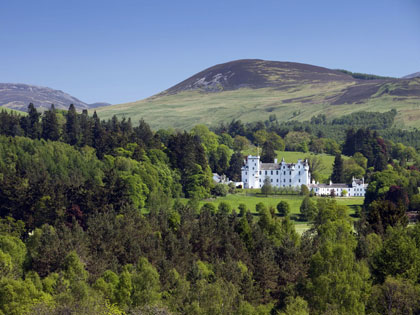
Your wedding will be a magical day and preparing for it can seem like a daunting task, as there’s always so much to arrange – the venue, the invites, the ceremony, the dress, the food, the party!
As soon as you announce your engagement you’re likely to have lots of helpful suggestions from what you should wear to where to hold the ceremony and everything in between. My first piece of advice would be to remember that it’s your special day and it’s important not to compromise on what you want just because someone else has a strong opinion (unless that someone else is your partner!) That said, don’t feel too pressurised to get everything perfect. What ultimately makes a wedding magical is the declaration of love between the bride and groom and what it symbolizes, therefore trust that your day will be magical, even if the weather’s not perfect, or something else happens that’s outside of your control. It will all become part of your unique story!
A traditional wedding isn’t what everyone dreams of and it’s more and more common to have an alternative wedding ceremony. An interfaith minister or open minded celebrant will be able to take into account your wishes and your religious beliefs (or lack thereof) and create a personalised wedding that fits what you and your partner desire, including accommodating two different sets of beliefs, if that applies.
You may consider marrying in Scotland, where you can have a full, legal wedding at any location – be it a church, a castle, a mountainside or a beach. In Scotland, the celebrant has the authority to marry, regardless of the location. That said, if you choose to hold your marriage outside, then it’s helpful to have a plan B in case it’s not a beautiful sunny day, as you might have hoped.
Many people choose a cultural theme for their marriage that’s outside of their own (perhaps from their ancestors, from a favourite holiday location, or some other destination that they feel an affinity with).
If you’re in Scotland, then immediately there are two traditional options at least for the groom – a suit, or a kilt, however you may also want to borrow from Nordic mythology or marry in a shalwar kameez, an Asian outfit for both the man and woman. Wearing an alternative outfit immediately makes the event more exotic.
If you’re unsure of the details of the ceremony, then a wedding celebrant can also help guide you in choosing music, including a ritual like hand fasting or lighting candles and deciding which readings are most important to you. Creating a highly personalised ceremony where family and friends contribute, whether through music, readings or by helping prepare the decorations and food all helps add to the magic. Don’t be worried about asking for help, most people will be both delighted and flattered!
Choosing a theme for your website is one way to help guide everything else, as it will to some extent determine not just the ceremony itself, but also the wedding outfit, the food, the decoration, etc. Remember though, it’s your day, so don’t feel too bound by the theme if you love most aspects of it, but want to include some aspects from other cultures. Be creative and enjoy the anticipation of the marriage nearly as much as you will enjoy the day itself.
Alternative Ceremonies in the UK
Alternative Ceremony provides more information about marrying in the UK, including a directory of interfaith ministers who offer personalised wedding ceremonies tailored to your needs. Visit http://www.alternativeceremony.org/ to find more information on non-traditional marriage ceremonies and to find a qualified celebrant.
All celebrants on the site have had at least two years’ training with the Interfaith Foundation.
Photo courtesy of www.wildernessscotland.com.

























